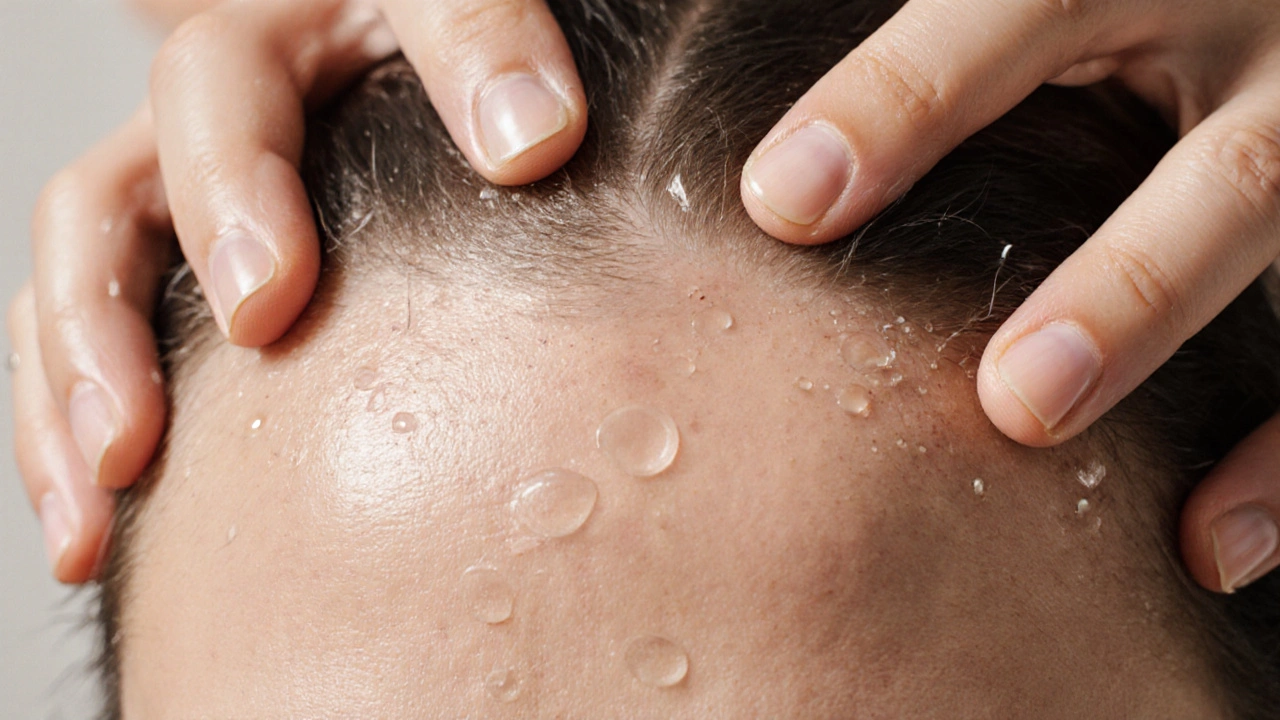Scalp Health: Your Guide to a Happy Head
When working with Scalp Health, the condition of the skin on your head, including oil balance, moisture levels, and follicle vitality. Also known as head skin wellness, it directly affects hair growth, comfort, and overall appearance. Think of your scalp like a garden: if the soil is healthy, plants thrive. Poor scalp health can lead to itchy flakes, weak strands, or even early thinning. The good news? Simple daily habits, plus the right products, can keep the environment balanced. Below we’ll break down the main players that shape scalp health and show how they work together.
Why Hair Loss Matters in the Scalp Conversation
One of the most talked‑about outcomes of bad scalp health is Hair Loss, the gradual thinning or shedding of hair caused by genetics, hormonal shifts, or an unhealthy scalp environment. When follicles don’t get enough nutrients or the scalp stays overly oily or dry, hair strands can weaken and break. This creates a feedback loop: thinning hair reduces scalp protection, which then worsens the skin’s condition. Addressing hair loss starts with restoring scalp health—using gentle cleansers, ensuring proper circulation, and sometimes adding targeted serums. By treating the scalp first, you give each follicle a better chance to produce strong, resilient hair.
Another common scalp complaint is Dandruff, visible flakes caused by an overgrowth of Malassezia yeast, excess oil, or irritation. Dandruff isn’t just a cosmetic nuisance; it signals an imbalance in the scalp’s microbiome. The right scalp health routine curbs the yeast, balances sebum production, and soothes irritation. Many people think a stronger shampoo will solve the issue, but the real fix often involves a combination of anti‑fungal ingredients, regular exfoliation, and moisturizing to keep the skin barrier intact. When you control dandruff, you also reduce itching, which means fewer scratches that could damage follicles and trigger more hair loss.
All of this ties back to the role of Dermatology, the medical field that studies skin, hair, and nails, offering professional diagnosis and treatment options. Dermatologists can pinpoint the exact cause of scalp problems—whether it’s psoriasis, seborrheic dermatitis, or an allergic reaction. They also prescribe medicated shampoos, topical steroids, or laser therapies that you can’t get over the counter. Partnering with a dermatologist ensures you’re not just masking symptoms but actually restoring the scalp’s health at a cellular level. In short, scalp health isn’t a solo mission; it’s a collaboration between everyday care, targeted treatments, and professional expertise.
Now that you see how scalp health, hair loss, dandruff, and dermatology interlock, you’re ready to dive deeper. Below you’ll find a curated set of articles that explore practical routines, product picks, and clinical options so you can build a personalized plan for a healthier, flake‑free scalp.

What Is the Healthiest Thing for Your Hair? The Science-Backed Answer
The healthiest thing for your hair isn't a product - it's a healthy scalp. Learn the science-backed basics of cleansing, hydration, diet, and stress management that actually promote strong, growing hair.

How Often Should You Wash Your Hair? The Real Scoop
Ever wondered if you’re scrubbing your hair too much or not enough? This article breaks down when you should actually wash your hair based on hair type, lifestyle, and the products you use. Learn what the experts really think about shampoo frequency. I'll share some fun facts, bust common myths, and throw in real-life tips so you finally know what works. Say goodbye to guesswork and bad hair days.
© 2026. All rights reserved.